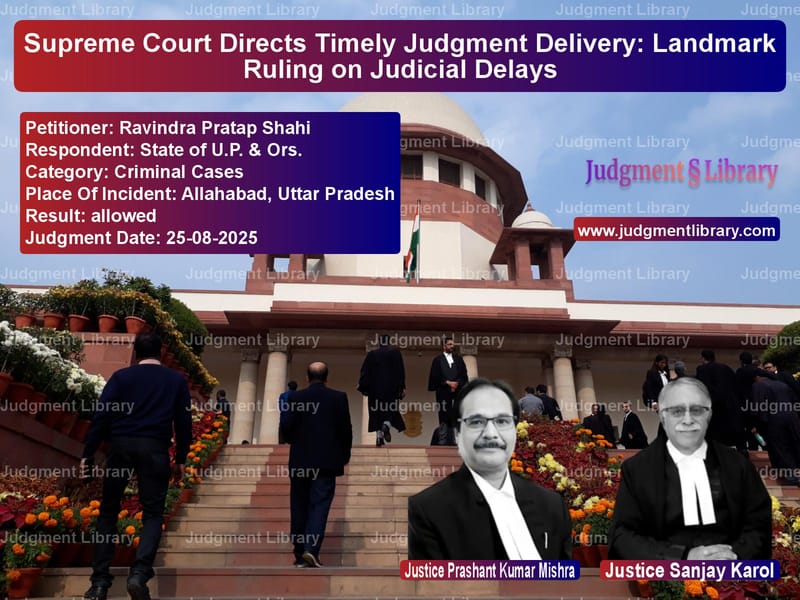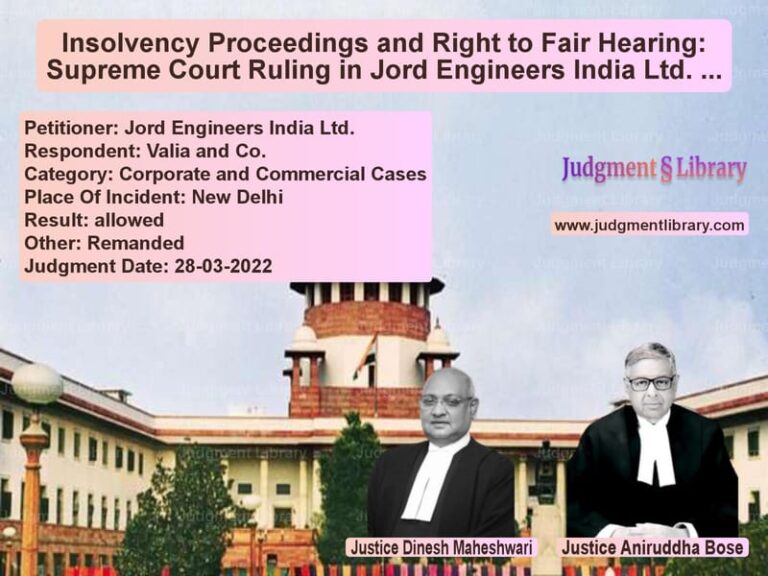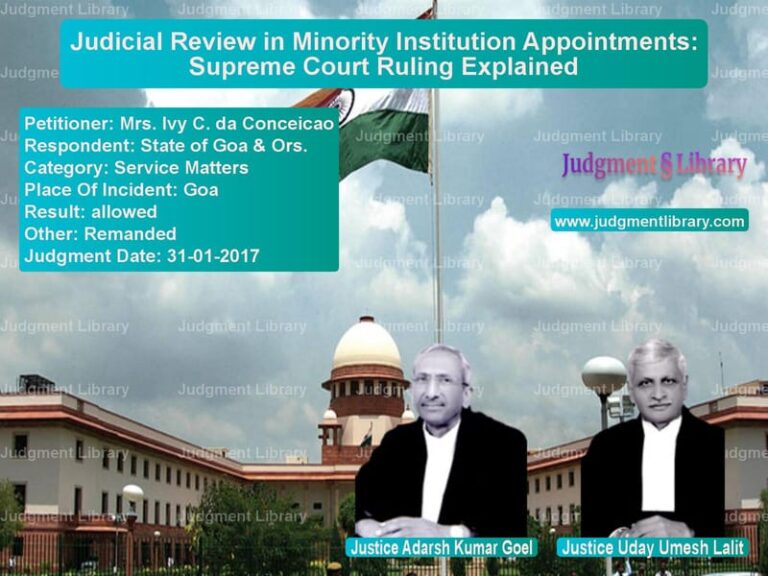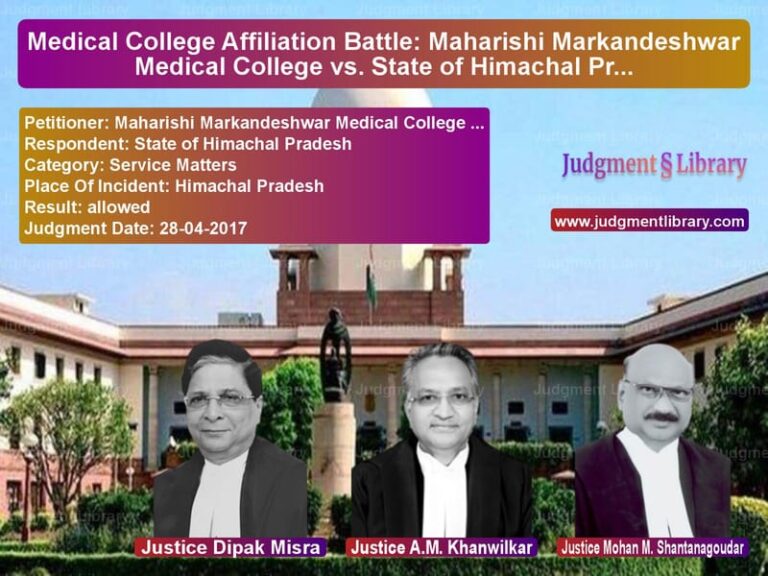Supreme Court Directs Timely Judgment Delivery: Landmark Ruling on Judicial Delays
In a significant ruling that addresses one of the most persistent problems plaguing the Indian judiciary, the Supreme Court has issued strong directives to ensure timely delivery of judgments after cases are heard. The case involving Ravindra Pratap Shahi versus the State of Uttar Pradesh brought to light a disturbing reality where a criminal appeal remained undecided for years despite being fully heard and reserved for judgment. This judgment serves as a crucial reminder that justice delayed is indeed justice denied, and the highest court of the land has taken firm steps to ensure that litigants do not lose faith in the judicial process due to inordinate delays in judgment delivery.
The Case That Exposed Systemic Delays
The matter before the Supreme Court originated from appeals filed by Ravindra Pratap Shahi against interim orders dated August 28, 2024, and January 9, 2023, passed by the High Court of Judicature at Allahabad. These appeals concerned Criminal Appeal No. 939 of 2008, which had been pending before the High Court since 2008. The shocking revelation that emerged during the proceedings was that the criminal appeal had been heard at great length by a Division Bench of the High Court and was reserved for orders on December 24, 2021. However, for reasons that remained unexplained, the judgment was never delivered.
The appellant, who was the de-facto complainant in the case, had moved the High Court on nine different occasions seeking early listing, hearing, and disposal of the appeal. Despite these efforts, no final verdict was forthcoming. The situation became so concerning that the Supreme Court had to intervene directly. On January 27, 2025, the Court directed the Registrar General of the Allahabad High Court to immediately bring the issue to the notice of the Chief Justice and submit a report regarding the correctness of the averments made in the appeals.
The Shocking Revelation
The report submitted by the Registrar General of the High Court confirmed the appellant’s worst fears. The report acknowledged that the appeal had indeed been heard and reserved for orders on December 24, 2021. However, since the judgment was not delivered within six months, in light of an administrative order of the Chief Justice dated March 7, 2019, the case was ordered to be listed before a Regular Bench as per the roster. The matter was placed before the Chief Justice again on December 19, 2022, upon which it was directed that the matter be listed as per roster on January 9, 2023. On this date, no one appeared for the appellant, leading to further adjournments and ultimately, no hearing materializing on subsequent dates.
The Supreme Court expressed its deep concern about this state of affairs, stating in strong terms: “It is extremely shocking and surprising that the judgment was not delivered for almost a year from the date when the appeal was heard. This Court is repeatedly confronted with similar matters wherein proceedings are kept pending in the High Court for more than three months, in some cases for more than six months or years wherein judgments are not delivered after hearing the matter. In most of the High Courts, there is no mechanism where the litigant can approach the concerned Bench or the Chief Justice bringing to its notice the delay in delivery of judgment. In such situation, the litigant loses his faith in the judicial process defeating the ends of justice.”
Historical Precedents and Established Guidelines
The Supreme Court noted that this was not the first time it was dealing with such a situation. The Court referred to its landmark judgment in Anil Rai vs. State of Bihar (2001), where it had dealt with similar state of affairs prevalent in some High Courts wherein after conclusion of arguments, judgments were not pronounced for periods spread over years. In that case, the Court had made important observations and issued guidelines that remain relevant today.
The Court quoted extensively from the Anil Rai judgment, including this significant passage: “It is true, that for the High Courts, no period for pronouncement of judgment is contemplated either under the Civil Procedure Code or the Criminal Procedure Code, but as the pronouncement of the judgment is a part of the justice dispensation system, it has to be without delay. In a country like ours where people consider the Judges only second to God, efforts be made to strengthen that belief of the common man. Delay in disposal of the cases facilitates the people to raise eyebrows, sometimes genuinely which, if not checked, may shake the confidence of the people in the judicial system. A time has come when the judiciary itself has to assert for preserving its stature, respect and regards for the attainment of the rule of law. For the fault of a few, the glorious and glittering name of the judiciary cannot be permitted to be made ugly. It is the policy and purpose of law, to have speedy justice for which efforts are required to be made to come up to the expectation of the society of ensuring speedy, untainted and unpolluted justice.”
The guidelines issued in Anil Rai case were comprehensive and included directions that Chief Justices of High Courts should issue appropriate directions to the Registry to mention dates of reserving and pronouncing judgments separately. They also mandated that Court Officers should furnish every month a list of cases where judgments reserved are not pronounced within that month. Most importantly, the guidelines provided that if a judgment is not pronounced within three months from the date of reserving it, any party should be permitted to file an application for early judgment, and if not pronounced within six months, parties should be entitled to move an application before the Chief Justice to withdraw the case and assign it to another Bench for fresh arguments.
Additional Concerns and Judicial Practice
The Supreme Court also addressed another concerning practice that has developed in some High Courts – the practice of pronouncing final orders without reasoned judgments, which are not delivered for substantial lengths of time. This practice deprives the aggrieved party of the opportunity to seek further judicial redressal. The Court noted that it had deprecated such practice in several cases including State of Punjab vs. Jagdev Singh Talwandi (1984), Zahira Habibulla H. Sheikh vs. State of Gujarat (2004), Mangat Ram vs. State of Haryana (2008), Ajay Singh vs. State of Chhattisgarh (2017), and more recent judgments in Balaji Baltram Mupade vs. State of Maharashtra (2021) and Ratilal Jhaverbhai Parmar vs. State of Gujarat (2024).
The Supreme Court’s Final Directions
After considering the historical context and the persistent nature of the problem, the Supreme Court issued clear and specific directions to address the issue of delayed judgments. The Court stated: “Therefore, what is required today is of adherence to the principles laid down by this Court in Anil Rai (supra). We reiterate the directions and direct the Registrar General of each High Court to furnish to the Chief Justice of the High Court a list of cases where the judgment reserved is not pronounced within the remaining period of that month and keep on repeating the same for three months. If the judgment is not delivered within three months, the Registrar General shall place the matters before the Chief Justice for orders and the Chief Justice shall bring it to the notice of the concerned Bench for pronouncing the order within two weeks thereafter, failing which the matter be assigned to another Bench.”
The Court made it clear that these directions were in addition to the guidelines already issued in the Anil Rai case. The Supreme Court disposed of the appeals with these observations and directions and specifically ordered that a copy of the judgment be circulated to the Registrar Generals of all High Courts for compliance.
The Larger Implications
This judgment represents a significant step toward ensuring timely justice delivery in India. By reinforcing and expanding upon the guidelines established in the Anil Rai case, the Supreme Court has sent a clear message that delays in judgment delivery cannot be tolerated in a justice system that prides itself on efficiency and fairness. The directions create a systematic mechanism for monitoring pending judgments and ensure that there are consequences when judgments are unduly delayed.
The ruling acknowledges the fundamental truth that the right to speedy justice doesn’t end with the conclusion of arguments but extends to the delivery of the judgment itself. When judgments remain undelivered for months or years after hearing, it creates uncertainty and undermines public confidence in the judiciary. The Supreme Court’s intervention in this case serves as an important corrective measure that will hopefully lead to more efficient judicial administration across all High Courts in the country.
This judgment also empowers litigants by giving them clear recourse when faced with delayed judgments. The systematic monitoring and the provision for reassignment of cases to different benches when judgments are excessively delayed create accountability in the system. As the Supreme Court rightly observed, when judgments are not delivered in a timely manner, “the litigant loses his faith in the judicial process defeating the ends of justice.” This ruling aims to restore that faith by ensuring that justice is not only done but seen to be done in a timely manner.
Petitioner Name: Ravindra Pratap Shahi.Respondent Name: State of U.P. & Ors..Judgment By: Justice Prashant Kumar Mishra, Justice Sanjay Karol.Place Of Incident: Allahabad, Uttar Pradesh.Judgment Date: 25-08-2025.Result: allowed.
Don’t miss out on the full details! Download the complete judgment in PDF format below and gain valuable insights instantly!
Download Judgment: ravindra-pratap-shah-vs-state-of-u.p.-&-ors.-supreme-court-of-india-judgment-dated-25-08-2025.pdf
Directly Download Judgment: Directly download this Judgment
See all petitions in Legal Malpractice
See all petitions in Judgment by Prashant Kumar Mishra
See all petitions in Judgment by Sanjay Karol
See all petitions in allowed
See all petitions in supreme court of India judgments August 2025
See all petitions in 2025 judgments
See all posts in Criminal Cases Category
See all allowed petitions in Criminal Cases Category
See all Dismissed petitions in Criminal Cases Category
See all partially allowed petitions in Criminal Cases Category







